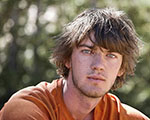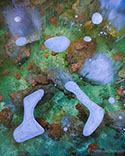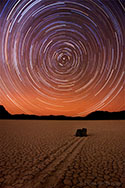
|
|
|||||
|
Featured Photographer, September 2010: Floris van Breugel
This month, our featured guest is Nature Photographer (and robotics hobbyist) Floris van Breugel, who has been kind enough to lend us some of his valuable time, and let us get to know him and his work. Who better to describe his work than Floris himself: "I find unparalleled exhilaration and inspiration, a sense of awe and discovery, and a healing calmness in the outdoors, and I hope my images allow you to feel the same...." We want to thank Floris for taking the time to answer our questions, and share some of his insights with us! Please visit his site links to see more of his incredible work, and to let him know you enjoyed this interview. :: How did you get started in photography? :: I've always been interested in nature, and art. I used to paint birds, using photographs from books and magazines to start from. Eventually I realized that I could be making those photographs, but it wasn't until affordable digital point and shoot cameras with high quality zooms became available that I was able to get started with bird photography. From there it didn't take long before I got into all kinds of nature photography, and reunited with my long love of exploring and backpacking. I see nature photography as a culmination of a variety of my creative and technical hobbies of the past (jazz guitar, painting, and robotics), merged with my love for the outdoors.
:: You do a lot of incredible night photography. How did you decide to get out and do this type of imagery? What were the biggest challenges to you? :: I love trying new things. For me, the most exciting aspects of photography are the creative and exploratory ones. So, naturally, I had to try anything out there that I could. Also, I realized that while many photographers lament clear blue skies, they allow you to see the stunning expanse of twinkling stars. So it opened a whole new way to take advantage of "bad light." I suppose the fact that both my parents are professors in Astronomy may have had a subtle influence. The biggest challenge for me was learning and developing new and refined methods of exposure blending to overcome the hurdles of blending over 9 stops of dynamic range, and retaining impeccable image quality down to every individual pixel.
:: What was the worst/scariest day you've had in the field photographing? :: Late one evening in 2008, I had just arrived in Yellowstone National Park with my girlfriend at the time, after a long drive from central Montana. In the distance along the road I saw a large brown object, which, I soon after identified as a Bison walking away from us in the other lane. I slowed down so as not to scare the animal. Just past the first Bison was another, this one, however, was facing the car. The headlights must have annoyed it, and it decided to charge the car. At this point I was driving just over 5 mph, and saw the 2,000 pound beast charge straight at me from 10 feet away, headed straight for the drivers side door. I slammed on the accelerator to try and outrun it, but it still nailed the back of the car leaving a 6 inch deep, 12 inch diameter dent. It felt like getting hit by another car! Fortunately no one was hurt, and nothing critical was damaged on the car.
:: What is the location you enjoy shooting most in your area and why? What challenges keep bringing you back there? :: I particularly enjoy Death Valley and the other desert areas in Southern California. I find there is so much potential for unique and interesting things to photograph, and all throughout the day. The landscape is particularly amenable to my style of simple, elegant and sensual compositions, and there are endless bizarre things to discover. It is also easy to find complete solitude in the desert, something I find invaluable for doing my best work.
:: You do a lot of more intimate landscape images. How does the thought process differ when you create an image like this as opposed to one of a larger scene? :: I don't really see much of a difference in my thought process. When I make an image, I decide what it is I want to portray, and I eliminate all other "unnecessary" or "distracting" elements. Sometimes that leaves me with an intimate scene, sometimes it leaves me with a grand landscape. In order for a grand landscape to come together for me, it must be unique in some way, which is harder to do than with intimate work. Also, the foreground, background, and sky must all work together — if there are clouds in the sky, they must convey the same sense of emotion as I see in the landscape, and must fulfill my interest in simple and elegant compositions. It's much easier to have control over an intimate landscape. They do not generally require unique conditions — typically either a sunny or overcast day is ideal (and easy to come by), or even midday in the shade — so the image becomes more a result of my vision, rather than some stroke of luck.
:: Which spot are you dying to photograph more than any other? Why? :: There are a number of places I very much would love to visit, including Venezuela, Patagonia, Iceland, Seychelles, Norway, Himalayas, New Zealand, Costa Rica, etc. All for different reasons,though they all share the common theme that they offer something that is above and beyond what I can find locally. But, in the end, I am incredibly content to spend the majority of my time getting to know my local landscape better as it helps me find and see the sorts of things I would certainly miss were I just passing through for a week or two as I would with such more exotic destinations. After all, within a day's drive on the west coast we have access to spectacular mountains, deserts, coastlines, forests, and even jungles. Over the years I'm sure I will make the trips to some of those marvelous places.
:: What piece of advice would you offer to someone just wanting to get out and begin some night photography? :: Do not let the technical difficulties of exposure blending get in your way. Learn enough to get you started, and then let your creativity and imagination roam. The beauty of night photography is that you have almost complete control over the scene. Uou can light it with a flashlight, or wait for the appropriate moon phase, or just blend in an exposure from the twilight afterglow. Consider the philosophical and aesthetic qualities of the night sky, and use these in visualizing your photographs. Try something more than just a classic landscape with stars — find foreground subjects that will somehow connect with the stars on a deeper level. |
Photographer Spotlight Interviews
|
|
 |
Other Cool Stuff→ Past Workshop Photos → 72dpi.com → How-To Articles → Photographer of the Month |
 |
Contact Us→ Contact Us → About Us → Site Map |
© 2009-2024 Aperture Academy, Inc.









